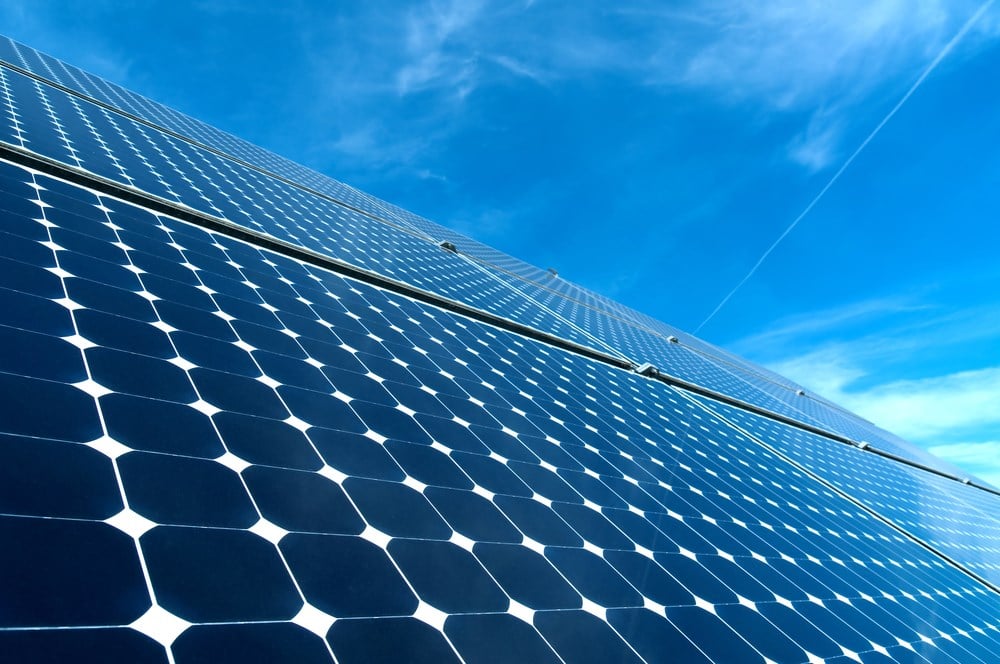
Whenever a new exciting industry hits the television screens of various market participants, investors crowd around a handful of names, typically those being popularized by talking heads and other quote-unquote professionals.
Today, you will examine why it is better to diversify your exposure across value chains, mitigating the possibility that you back up the wrong horse in a quickly saturating market. Many industries fit this profile; however, today's focus will be on solar stocks.
When oil first became popularized, markets jumped to invest in the actual commodity without thinking that the true winners would have been companies across the value chain, such as refineries or exploration equipment providers, taking all the upside without the swings of the commodity markets.
First in Line, Daqo New Energy
Solar panels, the backbone of the whole solar industry, are only possible with the proper raw materials and the processes needed to set up this energy transition. Namely, the photovoltaic process needs polysilicon wafers to function.
This is where Daqo New Energy (NYSE: DQ) feeds this quickly growing industry. Apart from being the poster child for upside potential in Ray Dalio's book, China is the largest exporter of polysilicon in the world. Daqo, on a similar note, is the largest manufacturer in the nation.
Leaning on the industry's demand tailwind, analysts are placing a consensus price target of $46.43 a share. Relative to today's compressed prices, there is an implied 50% upside in this stock, which is an excellent deal to get your start in investing within the solar industry.
Despite posting contractions across the board, as seen in the company's second quarter 2023 earnings results, there is more than meets the eye, reminding investors just how much upside there is in this stock.
Polysilicon production, as well as sales volumes, nearly doubled, according to these figures. That is on a quarterly, not annual, basis, by the way. So, why were revenues down by 48.8% during the year despite activity doubling?
The average selling price of polysilicon was $12.33 per kilogram in the latest quarter, relative to $27.83 per kilogram just a quarter ago. The only reason behind these cyclical contractions is the naturally oscillating price of the commodity.
Suppose you, like many savvy investors, believe that the future of the global energy industry relies on more sustainable methods of production (like solar and nuclear). In that case, you bet the price of polysilicon will once again rise on the ensuing demand that is to come.
Shoals Technology Group
Turning things down the value chain, once the raw material is provided (from Daqo) to manufacture the solar panels, one piece is still missing in this puzzle. A set infrastructure needs to be in place to allow for the installation and usage of the technology.
For Shoals Technology Group (NASDAQ: SHLS), here is where the business model shines, supporting the solar industry and the infrastructure and equipment needed to aid the development of the electric vehicle space.
Understanding that the newly built panels and the sales demand for such, will automatically trickle into increased business for Shoals, analysts have weighed in with their bullish views on the name.
With a consensus price target of $30.0 a share, there is an implied 60.0% upside from today's prices in this stock, building the foundation for a deal.
The magic of diversifying investments throughout the value chain begins to show its magic potential when investors dig into the second quarter of 2023 results. While Daqo's revenues declined due to uncontrollable commodity forces, Shoals' financials tell a different story.
Apart from setting a new record, revenues for the quarter grew by as much as 62% during the year. Gross margins expanded by 3.5% as well, pushing EPS by a massive 175% during the same period.
Moreover, the order backlog increased by an astonishing 67% as well. All that added production volume from Daqo, eventually ending up in new panels, will need Shoals' services installed, right? You guessed right.
NextEra Energy
Not only exposed to the nuclear side of things, NextEra Energy (NYSE: NEE) is also expanding its utilities portfolio to include solar. This is your portfolio's last chain to complete the total balanced exposure to growth from all sides of the equation.
After the raw materials are turned into panels, and the infrastructure is set to install them and put them to use, someone (a utility firm) needs to be in place to charge and run the new grid, giving power to these installed units, correct? That is why NextEra is such a vital player.
Analysts saw the whole playing field, from the increased output in Daqo to the order backlog expansion in Shoals; now, the final step is to assign the upside in NextEra, which will benefit from the growing solar grid one way or another.
You cannot put a price on saving the planet, except this time, you can. A consensus price target of $86.75 a share is the initial viewpoint set by analysts, which would require the stock to jump by as much as 46% to prove the predictions right.
The company's second-quarter 2023 presentation may illuminate the reasoning behind these views. EPS grew by a modest 14% over the year, but what is interesting is the gigawatt backlog that the company is looking to fill next year, a direct result of the activity seen in other value chain links.






